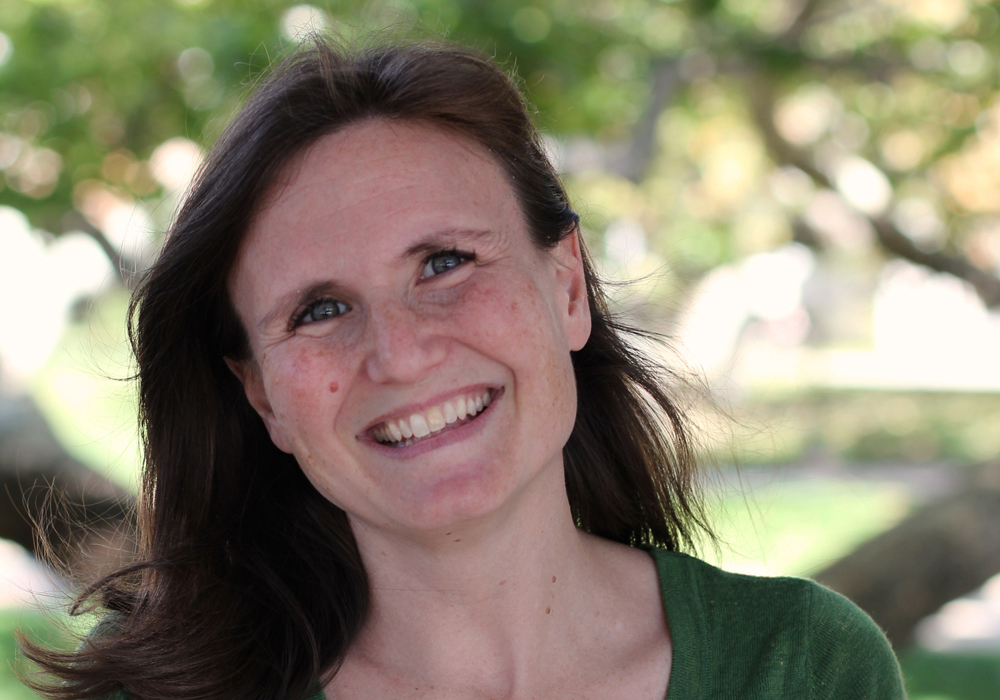UCLA professor-led study finds effects of culture on reactions to infidelity

A study led by Brooke Scelza, a UCLA anthropology professor, found that societies where men are more invested in the care of their children show signs of more jealousy in response to infidelity. (Courtesy of UCLA)

By Julia Shapero
Sept. 2, 2019 11:29 p.m.
This post was updated Sept. 5 at 10:41 a.m.
A UCLA study found that societies in which men are more invested in the care of their children show signs of more jealousy in response to infidelity.
The study, which was published in July, tested what was thought to be a universal notion about jealousy, said Brooke Scelza, principal investigator on the study and a UCLA anthropology professor.
The common notion is if you present people with two types of infidelity, emotional and sexual, men are more likely than women to be upset by sexual infidelity, Scelza said.
Previously, this notion had mainly been tested in university populations in the west, she said. Alongside other researchers, Scelza aimed to see if they could validate the same finding in a variety of places.
“One of the main findings was that we did actually find that in most places, that effect still stood that men were more likely than women to be upset by sexual infidelity,” she said. “But the other thing that we found, that was not the focus of most of the other papers, was that there’s a lot of variability in how severely places rate infidelity, like how bad they think it is.”
Scelza said this variation is fairly well known, but what they were attempting to do was to predict that variation. This is what led to their findings on paternal investment.
“We found that the level of care that men provide … was correlated with how severely people in a culture felt about infidelity,” she said. “So the more fathers were involved, the more people in that society rated infidelity as (having) severe effects.”
Siobhán Mattison, a co-author and assistant professor of anthropology at the University of New Mexico, surveyed the Mosuo, a matrilineal society in southwest China.
Mattison said she was particularly interested in the study’s potential to explain how people form relationships and to examine the consequences of relationship behavior based on jealousy.
Alyssa Crittenden, a co-author and associate professor of anthropology at the University of Nevada, Las Vegas, surveyed the Hadza, a Tanzanian group of hunters and gatherers.
The study was intriguing due to the fact that it not only examined variation among cultures, but also attempted to explain that variation, Crittenden said.
“When you find variation, it’s not just enough to say the variation exists,” she said. “How you push the field forward is attempting to make sense of this variation, to better understand how and why these cross-cultural differences exist.”
She added she thinks they were able to take a deeper dive into these associations since each researcher involved in the project had worked in their respective survey communities for many years.
“This wasn’t just a helicopter-in situation,” Crittenden said. “These aren’t just anthropologists who are spending short periods of time in the field. These are anthropologists who have worked in these communities for years and years, and so I think that did help to make the data more robust.”
The anthropologists who surveyed different populations for the study worked in their communities for an average of 11.5 years, according to the study.
Crittenden said this experience helped Scelza and her colleagues look at what was causing the variation.
“It was this long-term understanding of the social, the political, the ecological kind of environment that these communities live in that allowed (Scelza) to create these culture level variables, which then allowed her and her colleagues to make predictions about why this variation exists in the first place,” she said.
The study surveyed 1,048 individuals in 11 different populations around the world, including societies outside what researchers call W.E.I.R.D. – western, educated, industrial, rich and democratic – societies.
Jeremy Koster, a co-author and associate professor of anthropology at the University of Cincinnati, surveyed the Mayangna, an indigenous group in Nicaragua. Koster said psychologists sometimes survey convenient samples, such as university students, which are a part of W.E.I.R.D. societies.
“Some psychologists take the results and assert the universality of their findings without considering that maybe people in very different corners of the world would have a different perspective on these sorts of issues or questions,” he said. “To us, it felt basically incomplete.”
Scelza said since W.E.I.R.D. societies tend to be similar in the level of care fathers provide their children and the kinds of family structures present, it is difficult to generalize findings about jealousy.
“We shouldn’t assume that other places in the world that don’t share those same traits are necessarily going to feel the same way about infidelity or about the importance of concurrent relationships,” she said.
Mattison added she thinks replicating previous studies outside of the United States or an industrialized context is an important way of checking how well results generalize to other kinds of populations.
However, Scelza said the researchers were restricted in what kind of questions they could ask because they had to use survey questions that could be used in a variety of different places.
“I think what would really complement this study is more work that digs deep within a variety of societies and starts to try to understand this relationship between concurrent partnerships and paternal care,” she said.
Koster added that since they still sampled a fairly small number of societies, he hopes others will replicate their study to possibly find more variance.
“We hope that other anthropologists, other psychologists, perhaps will be inspired by our study to replicate it at their own study sites, and maybe their responses, their studies, will bring slight additional variation that we haven’t even considered yet,” Koster said.


